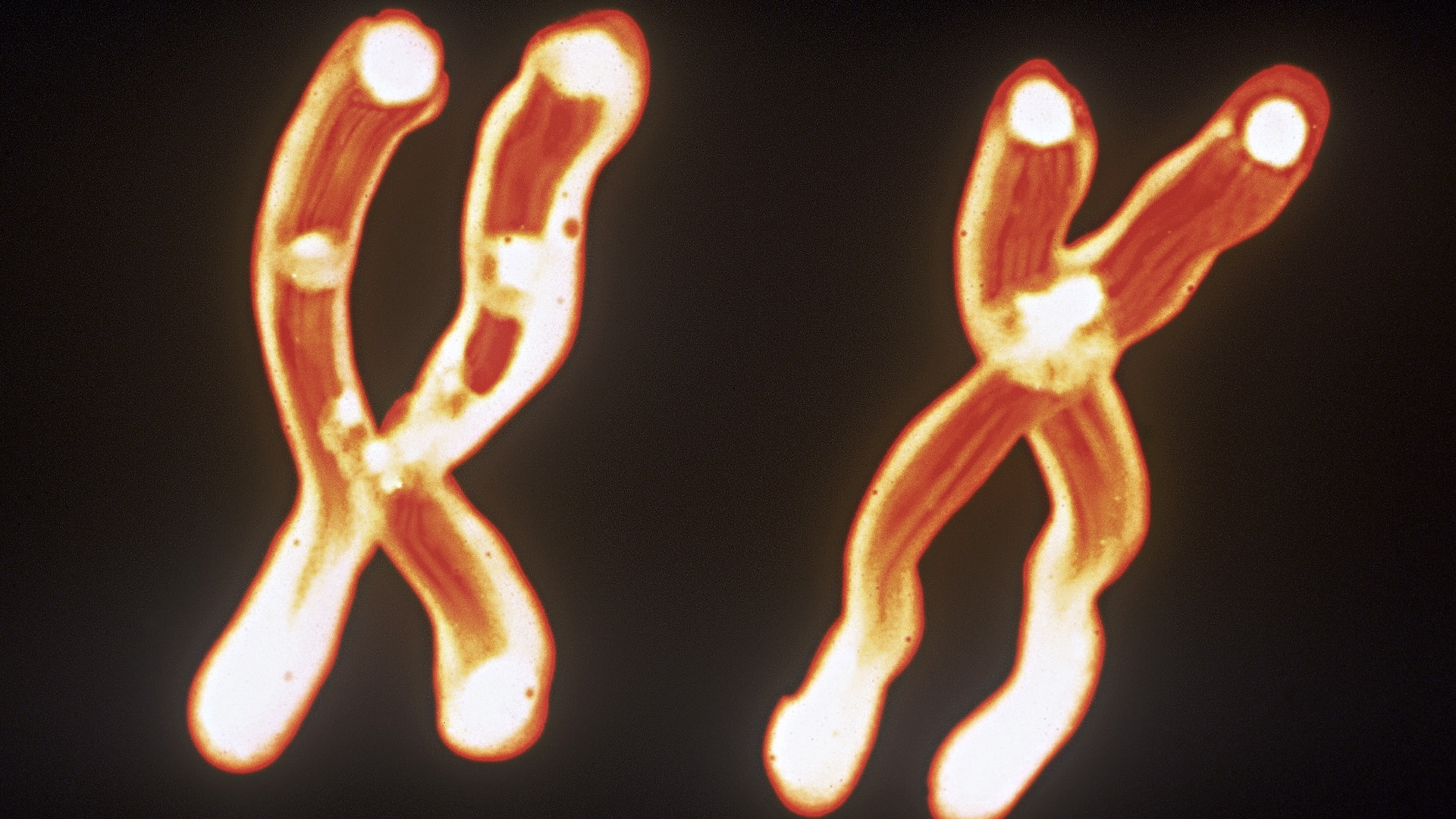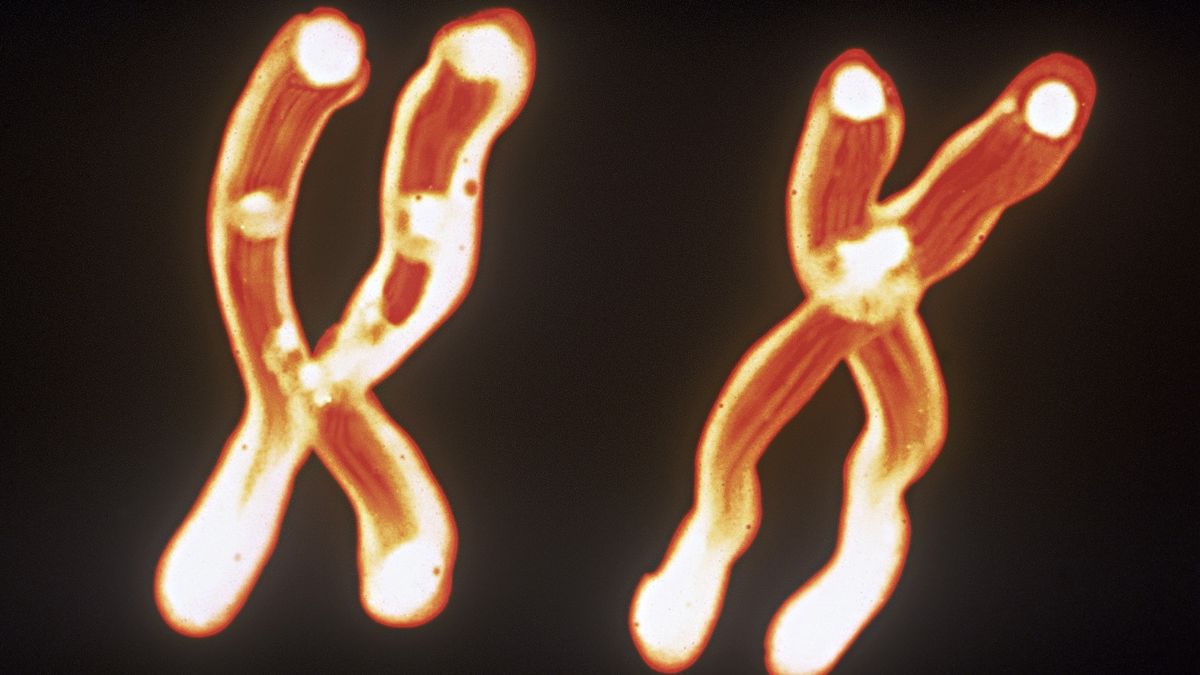
The X chromosome passed from mom to offspring may accelerate brain aging, a new animal study suggests.
The research highlights a potential fundamental difference in how males’ and females’ brains age. The research was conducted in mice, but if the findings translate to humans, they could point to sex-specific drivers of cognitive decline and, eventually, ways to prevent or treat them.
“Females show resilience in many measures of aging,” said senior study author Dr. Dena Dubal, a professor of neurology and the David A. Coulter endowed chair in aging and neurodegenerative disease at the University of California, San Francisco (UCSF). For instance, they tend to live longer than males and have lower rates of various forms of dementia. One exception is Alzheimer’s disease, which affects females at higher rates, but even so, some studies suggest that females survive longer with Alzheimer’s than males do.
Dubal and colleagues wondered if the sex chromosomes, X and Y, could help explain these differences. There’s evidence of genes on the X chromosome that help guard against dementia, while others contribute to the risk of cognitive decline, said Rachel Buckley, an associate professor of neurology at Harvard Medical School who was not involved in the new study. The new study uncovers a potential factor that may shape the X chromosome’s influence.
Related: 1 in 500 men may carry an extra sex chromosome (most without knowing it)
The origin of the X matters
Typically, females carry two X chromosomes in each cell — one from their mom and one from their dad. But a cell needs only one X to be active, so the other is “silenced.” This results in females carrying a mosaic of cells that have silenced either their paternal or maternal X chromosome. Meanwhile, males — who typically carry one X and one Y — only ever inherit their X from their mother, and it’s active in every cell.
“That makes us wonder about female resilience and whether that diversity of the X chromosome, having Mom’s and Dad’s, might contribute to resilience,” Dubal said.
To explore this idea, Dubal; Samira Abdulai-Saiku, a postdoctoral fellow at UCSF; and colleagues did experiments with female lab mice of different ages. Some experiments involved using a genetic trick to silence all of the paternal X chromosomes in certain mice, leaving only the mother’s X active. These mice were compared with others that had a mix of maternal and paternal X’s switched on.
“I actually really liked that approach,” Buckley said. Comparing females to males would have introduced additional sex-related factors, like hormonal differences, Buckley told Live Science.
The team also ensured that the X chromosomes from each parent were genetically identical, Dubal noted. So any differences that emerged would be related to which parent passed them along, not to differences in the genes themselves, she explained. This also enabled the team to pinpoint differences in epigenetics — chemical tags that attach to DNA and control which genes can be switched on.
Young “Mom-X” mice were cognitively similar to other young mice, performing about the same in maze-based tests. But at older ages, they showed starker cognitive decline, especially in their spatial memory and working memory. “The assays showed a pretty striking effect,” Dubal said.
The team wondered if these declines were related to changes in the hippocampus, a key memory center in the brain. To see, they looked at epigenetic markers on DNA from the hippocampi of young and old mice. Epigenetic tags change across the lifespan, with certain patterns correlating with “higher” biological ages — in other words, a more advanced degree of aging. At older chronological ages, the Mom-X mice showed a greater degree of biological aging in the hippocampus than did mice with both X’s.
The scientists then sorted neurons from the hippocampus based on whether the mom’s or dad’s X was active, so they could look at which genes were switched on.
Three genes were silenced on the maternal X — Sash3, Tlr7 and Cysltr1 — but were very active on the paternal X. Using the gene-editing tool CRISPR, they investigated what would happen if they switched these genes back on in the brains of old mice with only maternal X’s. In tests, these mice showed improvements in spatial learning and memory.
What does it mean for humans?
Interestingly, in humans, these three genes are involved in immune protection, but their exact roles in neurons aren’t fully understood, Dubal said. Future work could further investigate what the genes do in neurons and in other types of brain cells. It’s also unclear how or why the X chromosomes from different parents undergo different epigenetic changes, she added.
The team also wants to investigate what these findings might mean for males, who carry only maternal X chromosomes — and could, in theory, then have greater rates of brain aging. “One can imagine” that, the more active maternal X’s a person carries, the more pronounced the impact on brain aging, Dubal speculated. But that remains to be confirmed.
And, of course, because the current study was conducted only in mice, future research should look at human brain tissue to check that the results carry over, Buckley said. “This is such highly unique and novel work … but that is a caveat.”
In the long run, this line of research could help scientists understand the influence of sex on dementia risk, differentiating it from other factors, like education, that are more closely tied to gender, Buckley said. By pinpointing those biological drivers of brain aging, researchers could better determine how to intervene and tailor treatments to individual patients.
“Right now, we’re doing one size fits all,” Buckley said. “And realistically, this is not how we’re going to move the needle.”

